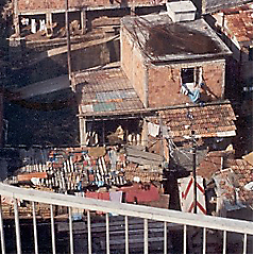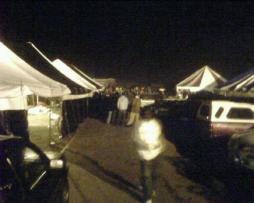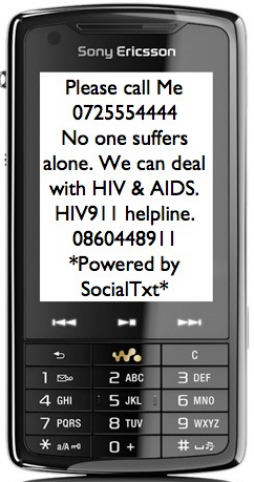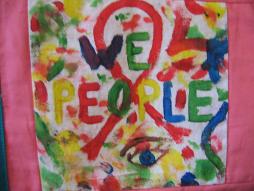South Africa
Posted by LeighJaschke on Jul 01, 2009
New Paths: Exploring Mobile-Centric Internet Use in South Africa data sheet 1546 Views
Author:
Donner , Jonathan ; Gitau, Shiko
Abstract:
The title of this workshop, ‘beyond voice’, is illustrative of one of the central questions currently surrounding mobile communication in the developing world. Put simply, there is a great deal of enthusiasm around the notion that a large group of users will access the internet for the first time via data enabled mobile handsets. Recent estimates from India, for example (Telecom Regulatory Authority of India, 2007), suggest there may be more mobile Internet connections than traditional PC Internet connections operational in the country. Concurrently, high-end smart phones promise browsing experiences which are steadily closing the gaps in speed and ease of use which have hampered earlier incarnations of the mobile internet, such as WAP.
But the raw enthusiasm, the aggregate statistics, and the glossy marketing images from the top-end of handset markets fail to capture the reality of mobile internet use in the developing world. The crux of this paper’s argument is that the research community knows comparatively little about this supposed community of users who access and use the Internet exclusively via mobile phones. We know little about who they are, how they discover and access the mobile internet, and how the mobile internet fits into their lives.
This paper reports on ongoing qualitative/exploratory research in low income communities in urban South Africa. Through convenience and snowball sampling, the researchers have sought out ‘early adopters’ among mobile-only internet users. The analysis of the interviews will delineate and describe distinctive new “paths” to Internet use that largely bypass PCs. We draw on a domestication approach (Haddon, 2003; Hahn & Kibora, 2008; Silverstone & Hirsch, 1992) to move beyond an ‘adoption’ or ‘diffusion’ paradigm and to complement aggregate statistical perspectives.
As exploratory research, this project cannot definitively identify all the new paths to the internet, nor the relative frequency with which individuals choose these paths. However, early findings will illustrate current and emerging practices in mobile-only internet use, as well as opportunities and constraints for policymakers interested in promoting or leveraging internet use among a much broader community of the world’s inhabitants
Posted by on Jan 01, 1970
n/a
Posted by KatrinVerclas on Aug 20, 2008
We are very pleased to announce the agenda for MobileActive08. Please take a look!
We had an overwhelming number of submissons for sessions, talks, and SIMlab and SIMSpace spots and had to make very hard choices. We appreciate the many superb session that were suggested by so many of you and thank you sincerely!
If you are thinking of coming, please register now. MobileActive08 is the largest event to date focused on mobile technology for social development. This global gathering brings together people like you - practitioners, researchers, technologists and donors experienced and interested in the use and application of mobile technology for social impact. Register now!
Posted by CorinneRamey on Jul 31, 2008
In South Africa, mobile phones and HIV/AIDS are two pervsasive realities. Some 75% percent of children and adults in the country have mobile phones, and according to the National HIV Survey, 10.8% of people over two years old are living with HIV. Almost 1,000 AIDS deaths occur every day. Cell-Life, an NGO based in Cape Town, aims to address this growing AIDS epidemic by using mobile phones.
Cell-Life's "Cellphones for HIV" project continues with two new pilot projects. In one pilot, Cell-Life will collaborate with the Treatment Action Campaign (TAC) in the Western Cape to provide information to communicty trainers and the wider HIV community. In the second pilot, Cell-Life will work with Soul City, which uses television and radio dramas to discuss issues such as social norms, health, and HIV/AIDS.
Posted by CorinneRamey on Jul 16, 2008
Mobile phone use is booming. There are close to 3.5 billion mobile phones in use, and mobile penetration rates are increasing quickly, especially in developing countries. This rise of mobile phone use by low-income and so-called 'base-of-the-pyramid' users raises a number of questions. Are low-income people using mobile technology in different ways than their higher-income counterparts? How can mobile phones be desiged and used in ways that are useful to these populations? Two new studies--one of favelas in Brazil and the other of a low-income township in South Africa--seek to answer these questions.
An article in Vodafone's Receiver magazine, "Cell phone use among low-income communities – an initial study of technology appropriation in the favelas of Brazil," looks at how low-income residents of Rio de Janiero's favelas (or slums) use mobile phones. The author, Adriana de Souza e Silva, conducted a study that involved interviews with the residents of three different favelas in Rio.
Posted by CorinneRamey on Jul 09, 2008
The news is coming. Or at least that's what Guy Berger titled his Knight News Challenge project, which aims to connect diverse populations in Grahamstown, South Africa to news through mobile phone- based citizen journalism and news delivery. Berger, head of the School of Journalism and Media Studies at Rhodes University was recently awarded a Knight News Challenge grant, which funds "digital information innovations that transform community life."
Berger talked with MobileActive about the project. "This is hyperlocal," he said. "It is to expand the town square of Grahamstown in terms of information and opinion flows." The "citizen journalists" will be high school students. In August, Berger's group will conduct workshops with 80 students separated into classes of 20. Each class will have two Saturday workshops about what it means to be a citizen journalist. The students will then submit news stories via SMS.
Posted by KatrinVerclas on May 26, 2008
I am in South Africa this week as violence against immigrants broke out in townships all over the country. There are several initiatives that have now been launched to combat the violence -- using mobile phones.
In response to the violence against foreigners, the Western Cape Emergency Task Team with the leadership of Peter Benjamin of Cell-Life, has activated a national SMS emergency system for citizens to respond to the violence. The Task Team, a coalition of South Africa's Treatment Action Campaign (TAC) and over 20 NGOs, has activated “NO TO XENOPHOBIA” SMS lines across South Africa.
Posted by KatrinVerclas on Mar 29, 2008
Erik Hersman, our excellent colleague and friend over at White African writes about a new mobile data collection tool for Africa focused right now on survey and field data capture. His review is reposted here with permission. Great stuff, thanks, Erik!
I was contacted about a month ago by Mark Fowles who works at Clyral, a web and mobile development company based in Hillcrest, outside Durban, in South Africa. He was emailing me to let me know about a new mobile data collection platform called Populi.net.
Posted by CorinneRamey on Dec 15, 2007
"Please Call Me" messages are a popular cultural form of mobile communication in South African society. These USSD messages are used to advertise everything from car insurance to domestic airlines to the local corner store. Today, thanks to a recent project by SocialTxt, these free messages are used for the first time ever for social marketing: to encourage South Africans to get tested for HIV and obtain AIDS information.
Posted by CorinneRamey on Dec 06, 2007
A mobile phone service launched in South Africa this past Saturday provides HIV testing station locations through the use of SMS. South Africans can send an SMS to the short code "31771" with the word "HIV" followed by the name of their town or postal code. The service then responds with the location of the two nearest traveling testing units.
iAFrica.com reports,
Posted by KatrinVerclas on Oct 20, 2007
HIV/AIDS is one of the most significant human, health, and development issues facing Africa today. NGOs and health care providers are increasingly turning to mobile phones to address the unique challenges of AIDS awareness, prevention and treatment. "HIV/AIDS is arguably the most pressing development problem facing South Africa – and Africa," asserts a report by the United Nations Children's Fund (UNICEF ) and Women'sNet, a South African network of people who use ICTs in gender-related advocacy and support. The report, titled "Rapid Assessment of Cell Phones for Development," is available here on the UNICEF website.







